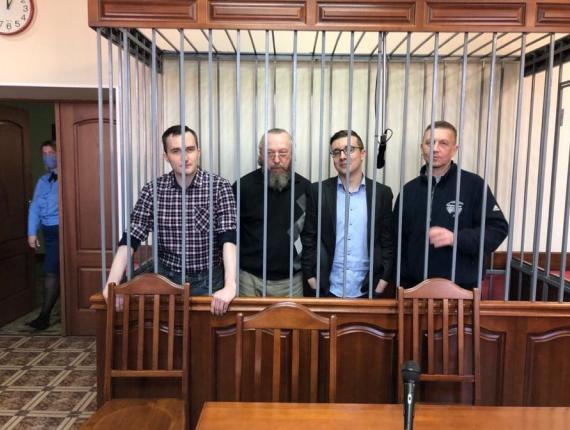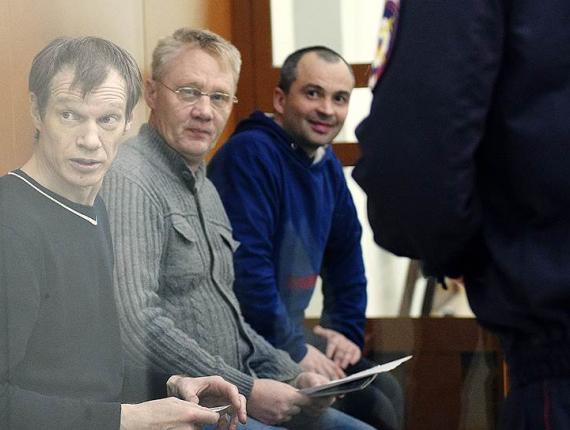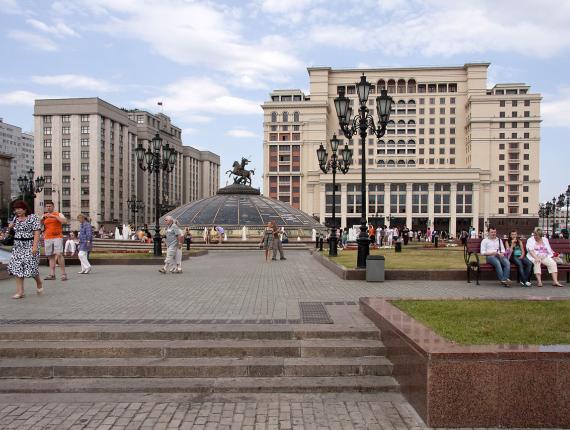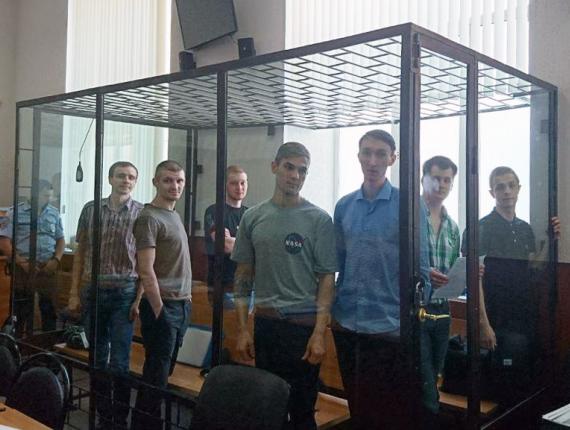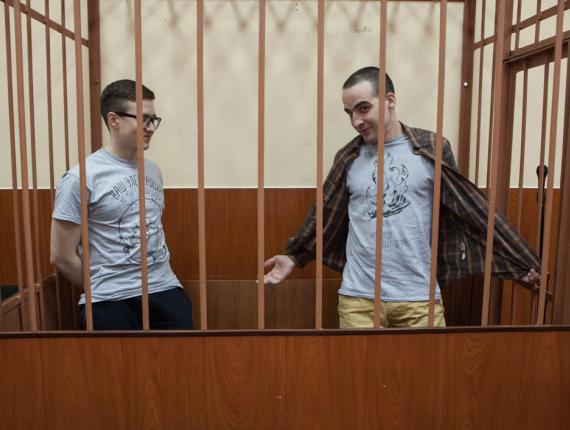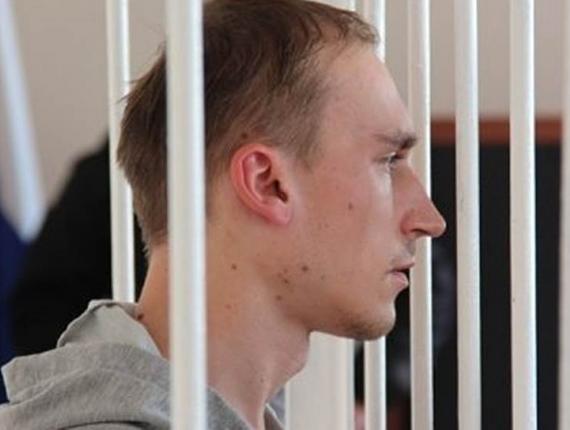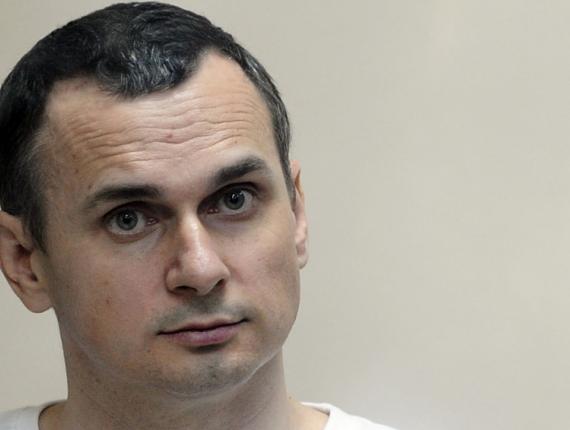How do the authorities use the article of the Russian Criminal Code on terrorist groups against political activists?
Memorial has published a report reviewing the use of Article 205.4 of the Russian Criminal Code
Our report analyses in detail the most prominent cases in which this increasingly popular article of the Russian Criminal Code has been used against political activists and shows the main mechanisms for building such prosecutionsDarya Kostromina, who works on the Programme for the Support of Political Prisoners at Memorial Human Rights Centre, considers a number of prosecutions — of the group of individuals that included Oleg Sentsov, of Artpodgotovka, the Baltic Vanguard of the Russian Resistance, Network and the Autonomous Combat Terrorist Organisation — to examine how Article 205.4 of the Russian Criminal Code on terrorist groups is being used against political activists.
The report shows how law enforcement based on this article of the Russian Criminal Code is becoming less logical and justifiable and increasingly arbitrary and repressive, and how such application of the article creates the danger of a further strengthening of repressive practices and increasing intimidation against those who do not share official views.
The author of the report comes to the following conclusions:
- The authorities are increasingly using the lack of definition of anti-terrorism legislation (the blurring of the distinction between extremism and terrorism, between arson, hooliganism and terrorism, the notions of group cohesion, leadership, and so on). Allegations of terrorism mainly depend on interpretations that are often questionable or lack any basis at all in fact.
- The investigators are motivated by self-interest to obtain confirmation of such interpretations by cruel and criminal means, including the torture of defendants and witnesses and the planting of material evidence.
- The need for Article 205.4 of the Russian Criminal Code is generally debatable since there is also the classificatory feature of ‘commission by an organised group’ that makes the charge of committing a terrorist act more serious, and the aggravating circumstance of ‘commission of a crime as part of an organised group or criminal association’ (Article 63, Part 1, Point ‘c’, of the Russian Criminal Code) that can apply to any kind of crime. It is clear, however, that the classificatory feature or the aggravating factor can only be applied to Article 205.4 of the Russian Criminal Code in relation to a specific crime, while Article 205.4 of the Russian Criminal Code is ‘useful’ because it can be applied in prosecutions where there is no evidence of specific criminal acts, and the accused can be sentenced to long terms of imprisonment.
- Russian anti-terrorist legislation has in fact extended the concept of terrorism to the preparation of revolutions and the overthrow of governments. In particular, a group of individuals who joined together to overthrow a government is considered a terrorist group.
- At the same time, this understanding of terrorism is broader than that established in international law, such as in UN Security Council Resolution 1566 or in the International Convention for the Suppression of the Financing of Terrorism adopted by the UN General Assembly in 1999. Moreover, in accordance with Russian legislation, changing the foundation of the constitutional order by force or the obstruction of the lawful activities of state bodies by force corresponds to the definition of extremist, not terrorist, activities.
The cost of mistakes and abuses by the authorities in prosecutions of terrorist groups (as in other terrorist cases) is extremely high. Under Article 205.4 of the Russian Criminal Code, life imprisonment is possible and a series of laws significantly worsen the situation of those accused and convicted under this article. Moreover, the charge of terrorism in itself acts as a very specific label that creates significant obstacles in making the public aware of the unfairness of a prosecution.
The use of Article 205.4 of the Russian Criminal Code on terrorist groups is not yet widespread, especially against political activists. However, the manner in which criminal cases against the latter are constructed has acquired common features with those prosecuted under Article 205.4 of the Russian Criminal Code, and this carries an enormous risk of a drastic tightening of repressive practices.
Поделиться:
- ВКонтакте
- РћРТвЂВВВВВВВВнокласснРСвЂВВВВВВВВРєРСвЂВВВВВВВВ
- Telegram



